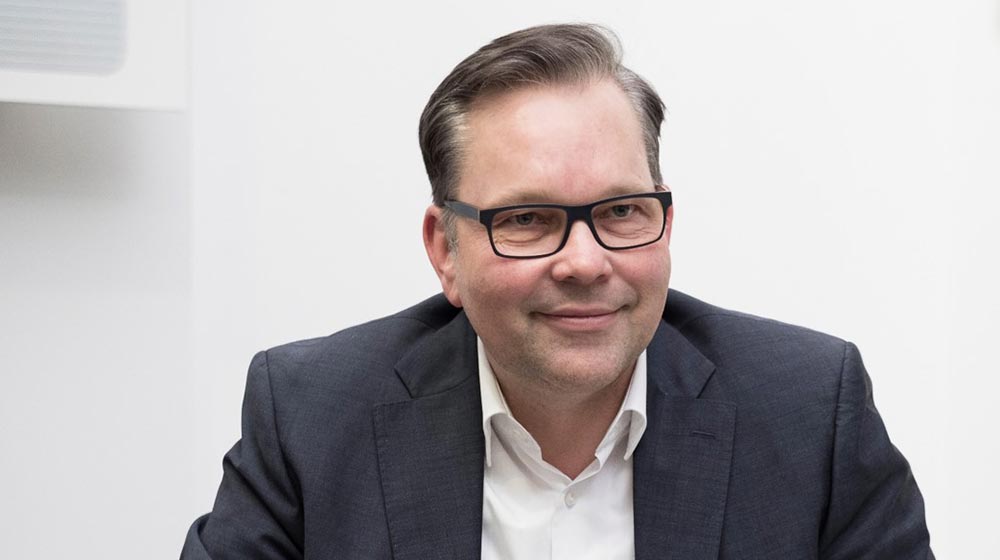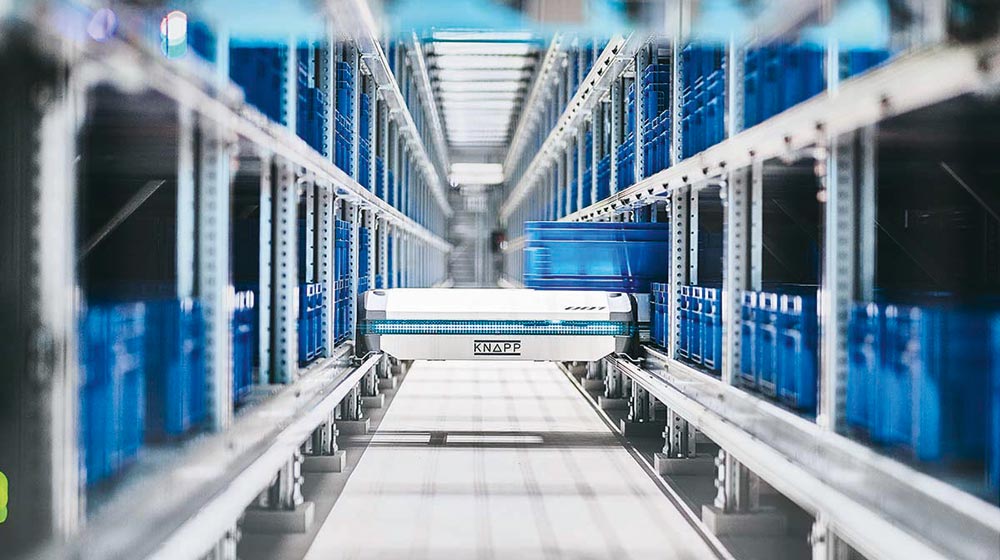
Claudius Semmann
DVZ: Mr Winkelmann, Arvato Supply Chain Solutions opened a shuttle warehouse at the logistics center in Harsewinkel in Gütersloh District. This system will process products from 25 pharmaceutical and medical technology manufacturers. Will this automation be used as a kind of blueprint for other locations?
Thorsten Winkelmann: For the time being there are no plans to install a shuttle system like this at other locations – this is unique to our healthcare segment. But we do have other technological solutions at our other sites. For example, we have installed AutoStore systems, such as the ones we are currently putting into operation in Hamburg and in Memphis, USA. And for Harsewinkel, we are planning another rack-to-person system for refrigeration between 35 and 46 degrees Fahrenheit (2 and 8 degrees Celsius). The shelves go to the employees like they do at Amazon, for example.
Arvato has invested 15 million euros in the shuttle warehouse. Why will this high level of automation pay off in the end, do you think?
First of all, it means we need fewer additional staff and we increase productivity. But the main reason for automating at this location was to create opportunities for growth without having to expand the Harsewinkel site much in the short term.
When service providers invest in automation, they expect contracts to run a little longer too. What is the trend here?
There has not been a trend towards short terms for initial contracts for some time now. That being said, initial contracts do not tend to run long enough that an investment like this pays off. This is why it is important to find flexible solutions that can continue to be used, which is the case with our new shuttle warehouse.
How long do initial contracts in the healthcare sector normally run?
At the moment they are usually a minimum of five years.
About the person
The 54-year-old has headed the Healthcare division at the Bertelsmann subsidiary Arvato Supply Chain Solutions since 2005. After studying business administration and earning a doctorate in economics at the University of Göttingen, Thorsten Winkelmann began his career in 1997 as an assistant to a member of Arvato’s Executive Board, and since 1998 he has held various management positions.

You mentioned growth opportunities. What does growth mean in your business?
First of all, there isn’t just one single healthcare business. The generics sector, for example, will continue to grow, but it is very cost-intensive. And then there are sectors that are not really growing at all, such as traditional pharmaceuticals, i.e. the 50-euro package for pharmacies. I can’t give absolute figures for individual Arvato divisions, but we double our healthcare revenues about every four to five years – and have been doing so for more than ten years now. So that’s an average of about 20 percent growth per year. We believe that the segments relevant to us in the market grow by about 3 percent each year. We are also continuing to see a clear trend towards outsourcing. And the market for the broad spectrum of services that we offer is growing by about 8 percent per year on average. So far, we have managed to grow about twice as fast as the market, which we intend to maintain.
What is driving this growth?
It is important that we not only cater to wholesalers, but also accommodate the trend towards direct sales to hospitals, pharmacies and sometimes even patients. Now, it is not the case that the mass market is necessarily becoming much more direct, so this is not a megatrend. But there is a lot going on, especially with medical technology and particularly high-value medicines. And here we are well positioned with our complete fulfillment services, which include order management, customer care and financial processing, as well as warehousing and transport. In addition, our clients like to consolidate their business with a few partners, with the trend increasingly turning towards one-stop-shops for international distribution. We have already acquired customers whose entire European operation is in our hands, and almost all of our clients use our services in at least two countries. Our IT integration and networking processes are also highly attractive to customers.
During the pandemic, there was a general trend towards more safety stock. How high is the demand for storage capacity in the healthcare sector at the moment?
Stocks are still at a high level. We are also seeing a clear trend towards decentralization. This has a lot to do with the pandemic. In addition, many of our customers who offer special medicines have grown so much that they are setting up warehouses, stocks and distribution structures in several countries in addition to a central warehouse with us. And we believe that this trend towards more regionalization will continue, especially because safety stock now plays such a major role. The pharmaceutical industry is aiming for more local storage overall. Medical technology, on the other hand, is still mainly distributed centrally. This is also due to the fact that the central warehouse is increasingly supplemented by on-site stocks in hospitals because they demand constant availability. We also manage these consignment stocks – so there is no longer any need for a regional warehouse.
Do you have a special request?
Contact us if you would like to learn more about the efficiency of German logistics!